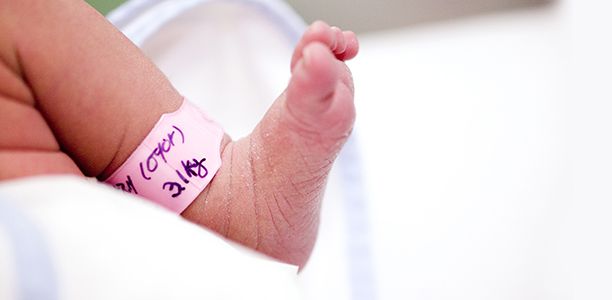An international effort led by the University of Sydney hopes to protect hundreds of Bangladeshi newborns from a host of severe health problems by assessing the effect of lactoferrin, a natural protein found in breast and cow’s milk, in the treatment of iron deficiency anemia in pregnancy.
If successful, the results could be cost efficiently scaled to sustainably improve the health and development of millions of newborn children around the world.
The trial’s funding has just been approved by an international consortium comprising the Bill and Melinda Gates Foundation, USAID, the Norwegian Government, Grand Challenges Canada, and UK AID.
“Lactoferrin could prove to be a cheap and accessible way to rapidly reverse some of the ill effects of iron deficiency that affect two billion people globally,” says, Professor Michael Dibley of the University of Sydney, leader of the trial to be conducted in Bangladesh.
A component of the human immune system, lactoferrin also has antiviral, antibacterial, antifungal, anti-inflammatory and anti-carcinogenic properties.
Size and nature of the problem
Iron deficiency in pregnancy affects more than 50% of women in low-income countries, 12% in Australia and the UK, and in 25 to 40% in Aboriginal and other disadvantaged groups of women.
Pregnant women can develop iron deficiency anemia due to the increased iron requirements of a growing fetus, and the higher volume of blood circulating in a woman’s body during pregnancy.
Lactoferrin is an iron-binding protein that may rapidly restore natural iron levels and aid the prevention of iron deficiency – a risk factor for anemia that poses health risks to a developing fetus. These risks may include impaired fetal growth, premature birth, low birth weight and higher rates of neonatal death.
Anemia during pregnancy could also predispose newborns to future problems, such as irreversible psychomotor delay, low intelligence, behavioural and school problems, obesity, diabetes and hypertension.
How the research trial will work
“Our trial in Bangladesh, which starts shortly, will initially compare lactoferrin with ferrous sulphate – both in oral capsule form – in iron-deficient anemic, non-pregnant women,” says University of Sydney Professor of Neonatology, Professor William Tarnow-Mordi.
“Iron sulphate is currently the standard first line of defense against anemia but it is suboptimal and has a host of negative side effects. For example, it is poorly absorbed, causes inflammatory problems, and poses a risk of accidental overdose and death in children if not safely stored.”
If Lactoferrin proves to be as safe and effective as iron sulphate, the trial will proceed to a second stage comparing lactoferrin with (i) ferrous sulphate and (ii) lactoferrin supplemented with vitamin A and riboflavin for the treatment of iron deficient, anemic pregnant women. A third stage of the trial will compare lactoferrin with iron sulphate on birth outcomes.
Scaling the benefits
The Bangladeshi trial is a collaboration between the Sydney School of Public Health, the NHMRC Clinical Trials Centre, the WINNER Centre for Newborn Research, the International Centre for Diarrhoeal Disease Research, Bangladesh and BRAC, a development organisation that alleviates poverty by assisting poor people to create change in their own lives.
“If the trial is effective, we will be working with our partners in Bangladesh and other regions in Asia and in Australia, New Zealand and Europe to raise the availability of lactoferrin,” says Professor Dibley.
“To do this sustainably in Asian countries will mean scaling up the milk production capacity of those countries. This offers enormous benefits in terms of research and development, skills infrastructure capacity building, and employment.”
(Source: The University of Sydney)










